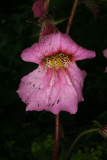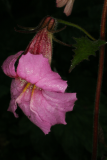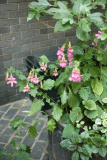Additional notes (click to expand)
Commemorative
Named for Joseph Rehmann ((1753-1831) German physician (Stearn, 1994) who emigrated to St Petersburg and became the personal physician to Tsar Nicholas 1.
Oakeley, Dr. Henry F. (2013). Wellcome Library notes.
link
Medicinal
Medicinal uses
Uses supported by clinical data
None. Although published case reports indicate that Radix Rehmanniae
is used for the treatment of rheumatoid arthritis and hypertension (19),
data from controlled clinical trials are lacking.
Uses described in pharmacopoeias and well established documents
Internally for the symptomatic treatment of fevers, diabetes, hypertension,
skin eruptions and maculation, sore throat, hypermenorrhoea
and polymenorrhoea (4, 20). As a tonic to stimulate the immune system
(21).
Uses described in traditional medicine
As an antispasmodic, diuretic and emmenagogue. Treatment of burns,
diarrhoea, dysentery, metrorrhagia and impotence (7, 20, 22, 23).
Contraindications
Radix Rehmanniae is contraindicated in chronic liver or gastrointestinal
diseases and in patients with diarrhoea (3). Owing to its potential antiimplantation
effects (55), the use of Radix Rehmanniae during pregnancy
is also contraindicated.
WHO Monographs on Selected Medicinal Plants. Volume 3. 2007. WHO, Geneva
The following notes refer tp related species.
Rehmannia angulata (Oliv.)Hemsl. Scrophulariaceae Chinese foxglove. Distribution: China. Rehmannia glutinosa is used in Traditional Chinese Medicine for arthritis.
Oakeley, Dr. Henry F. (2013). Wellcome Library notes.
link
Nomenclature
Syn. = Rehmannia angulata misapplied
The Royal Horticultural Society Horticultural Database, available at www.rhs.org.uk
A synonym of Rehmannia piasezkii.
Plants of the World online, Kew Science http://plantsoftheworldonline.org/taxon/urn:lsid:ipni.org:names:808650-1
link
Geographical distribution
- Asia-Temperate, China
Rehmannia elata N.E. Br.
Family: OROBANCHACEAEGenus: Rehmannia
Species: elata N.E. Br.
Common names: Chinese foxglove
Distribution summary: China (Hubei)
Habit: Perennial
Hardiness: H3 - Half hardy; unheated greenhouse/mild winter
Habitat: Grasslands and Roadsides
Garden status: Not currently grown
Reason for growing: Commemorative, toxic

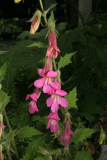
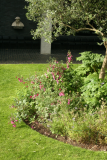
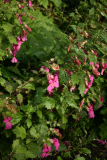
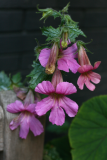
.JPG)
.JPG)
